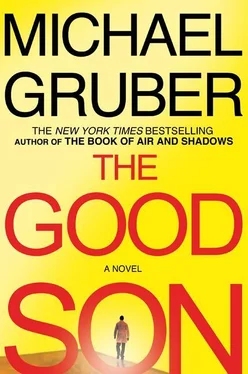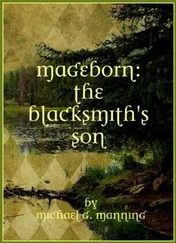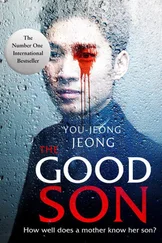Sonia thinks it is a good speech, cogent and spoken from the heart. No one listens to it, of course, since here in the heartland of misogyny no man ever listens to what a woman has to say, especially about war. War is the life of men here; the Pashtuns have always had war: clan war, tribal war, the war of nations and empires when available; peace means poverty and boredom to them. If Sonia had translated into Estonian instead of Pashto they could not have been less interested. Nevertheless, Alakazai rises now and explains why the woman is in error. The wars of the infidels are of no concern to the faithful, they are a just punishment on a people who disdain God’s holy word and His prophet, peace be upon him. The jihad, on the other hand, is not war at all but a sacred duty and cannot and should not be stopped until the House of Peace, the umma, has won its final triumph over all unbelievers, which we rightly call the House of War. Everyone listens to this with respect and afterward they all shout the greatness of God and wave their weapons in the air.
Alazakai has been brief because the assembly is anxious to attend the next item on the agenda. He gives orders; the guards heave Cosgrove to his feet and drag him out, followed by the men and the prisoners. In the courtyard the prisoners are lined up against the wall as before. Sonia supports Annette, who does not seem to need much supporting; her face bears the thousandyard stare of the combat veteran. The sky is overcast, as it often is this time of year, and a chill wind whips up small dust devils in the yard. Then, remarkably, the sun emerges from a small gap in the cloud cover, as if on order. A man holds what looks like a professional camcorder. One of the Arabs has a smaller camcorder and there are quite a number of cell-phone cameras in use. Sonia reflects that neither these people nor the culture they represent could ever have even dreamed up such a thing as a camcorder or a cell phone, far less the Internet along which they will send the images, but they are perfectly comfortable using them, rather as worms infest a larder without any idea of where the food came from. She realizes this is an imperialist thought; perhaps these toys are only a fair recompense for the zero, paper, and algebra-gifts of the umma and vital to the rise of the West-but just then she is not ashamed of it; she wishes a CIA drone would fire a missile and burn all of them to a crisp.
The guards bind Cosgrove’s hands behind him and force him to his knees. There is no ceremony. A large man wearing a black ski mask comes forward carrying a chora, the thick-backed chopping knife of the Pashtuns, and strikes Porter Cosgrove’s head off with one blow. Sonia makes herself look, and like everyone who sees this phenomenon for the first time she is amazed at the height of the blood fountain that shoots from the severed neck and how much red liquid is contained in a human body. The sad corpse topples slowly over, and the dusty smeared head is held up by the executioner, to a great shout from the crowd attesting once again to the greatness of God.

Later, she is with Annette in the prison room, listening. The new widow is dry-eyed. “What’s wrong with me?” she asks, “I can’t feel anything. I mean, if we’d been together, if Porter hadn’t-you know-collapsed like that, like he decided to die, to dissolve, before they killed him, maybe that would’ve been different; we could’ve talked about our lives and I could’ve held on to something, I could’ve felt that our life together wasn’t meaningless. That pathetic thing they killed wasn’t him. What I said in that speech was real; that was the real Porter. I loved him. I thought I loved him, but who was he? Was he really that… sad thing? I can’t cry for that. Am I a monster? Why can’t I cry?”
“You’re in shock. Don’t be hard on yourself.”
“That’s your advice? Okay, I won’t be. I’ll watch a little TV and catch up on my e-mails. Is that Islamic, by the way? Is that what God says? I see you talking to Him all the time. Is it like He’s saying, Hey, when my servants cut off your husband’s head, kick back, take it easy! Only in more elevated language, of course.”
And more of this. Sonia endures it without demur, this outpouring of the poor woman’s rage against fate, against God; because fate and God have left the building and there is only Sonia, the closest thing to a responsible party. The mujahideen have done exactly the same thing in response to their injuries real and imagined, if more violently, and if Annette had been able to swing a chora, she might have chopped off Sonia’s head too.
“I know how you feel,” says Sonia, inserting this at a break in the tirade. A banality, but at certain times in life only banalities are appropriate. Annette makes the expected response; she sneers contemptuously and says, “Oh, do you? You saw your husband’s head get chopped off? Well, well, small world! Actually… actually, you have no fucking idea how I feel.”
“No, I’m serious,” says Sonia. “One day in Zurich, I received a telephone call telling me that my three children had been murdered in the assassination of their grandfather in Lahore. It was a bomb, and they were all burned beyond recognition. I didn’t go to the funeral, I didn’t even know about it until my niece thought to call me. I really was a monster at the time, certified monstrous by an Islamic court, exiled from my family and children. Would it have been worse if I actually saw them burn to death? I don’t know, but I do know that at the moment I got the call I would’ve given anything to have been there. If it doesn’t happen before your eyes, I think the human mind harbors the desperate illusion that maybe the loved ones survive; maybe they’ll show up someday; it was all a mistake. And in my case, it was a mistake. My boy survived and I was able to find him again. But my little girls are still dead. Aisha was eight, Jamila was four. So I do know how you feel.”
This revelation has the desired effect of snapping Annette-temporarily, at least-out of the downward spiral of self-pity and survivor’s guilt. She says, “I’m sorry. That’s awful.”
“Yes, and I’ll tell you the most awful thing about it… no, the second most awful thing. A little heads-up for you. Tomorrow morning the sun will rise despite the horrendous thing that it looked down on today. Almost all the rest of the people on the planet will go on with their lives in utter indifference to what has happened to you. The executioners will not be sorry, and it’s odds-on they won’t be punished for what they did. They’re probably in the tea shop right now, laughing and joking about the day’s events. We will all be sorry and supportive, whatever that word means exactly, but we won’t be able to take any of your pain away, and everything we say to you will sound insincere. Because we didn’t love Porter and we won’t miss him, or at least not the way you do. And you’ll go on, too. You’ll fight it. You might not eat for a while, but sooner or later you’ll be hungry and you’ll eat, and the food will taste good, and in a shorter time than you imagine, someone will crack a joke and before you can recall that you’re a grieving widow, you’ll laugh. And assuming we survive this ordeal, you’ll have a life. You’ll drink cocktails and buy clothes and make love with a man. Yes, I can see the horror on your face, but you know I’m speaking the truth of my experience. From time to time, you’ll despise yourself, but you’ll have a life. What are you, thirty, thirty-two? You will not wear black until you fade away, mourning Porter Cosgrove. You will mourn for a time, and it’ll take different forms. For a week after I got the news about my children I was numb, a sleepwalker. I didn’t talk to anyone, wore the same soiled clothes. I ate from street vendors. One day I was on the Bahnhofstrasse in Zurich, down the street from Globus on my way to buy a sausage bun, when it hit me in a different way and I started to scream and tear at my hair and face. I fell down on my knees and pounded my head on the pavement. This is not allowed on the Bahnhofstrasse. The police came and took me away and I ended up in the Burghölzli mental hospital. That was how I became a psychoanalyst.”
Читать дальше













